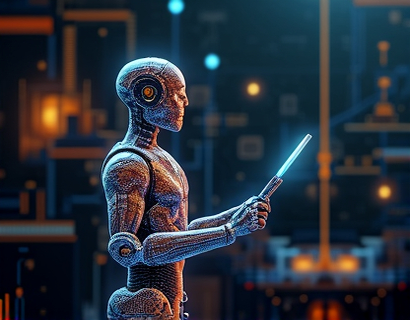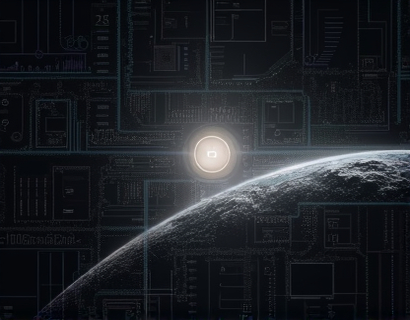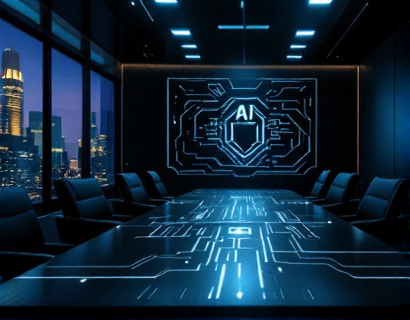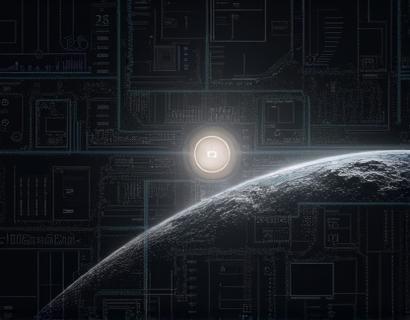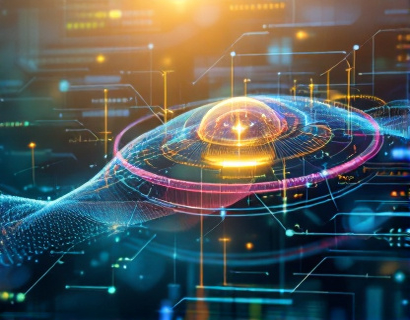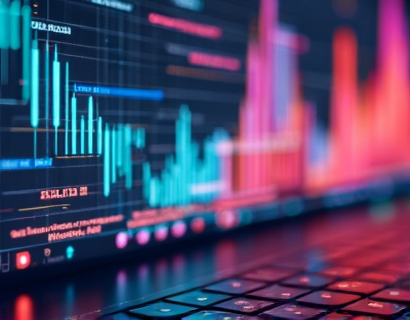Revolutionizing Digital App Ecosystems: The Synergy of Crypto and AI
The integration of cryptocurrency and artificial intelligence is ushering in a new era of digital innovation, fundamentally transforming app ecosystems. This fusion brings together the decentralized, secure, and transparent nature of blockchain technology with the advanced computational capabilities of AI, creating solutions that are not only more efficient but also more secure and user-friendly. As we delve into this transformative landscape, it's essential to understand how these technologies complement each other and the profound impact they have on digital interactions.
Understanding the Basics: Cryptocurrency and AI
Cryptocurrency, often referred to as digital or virtual currency, operates on a decentralized network known as blockchain. This technology ensures that transactions are secure, transparent, and immutable, eliminating the need for intermediaries such as banks. On the other hand, artificial intelligence involves the simulation of human intelligence processes by machines, particularly computer systems. These processes include learning, reasoning, and self-correction, enabling AI to perform tasks that traditionally required human intervention.
The convergence of these two technologies is not merely a coincidence but a strategic alignment that leverages the strengths of both. Cryptocurrency provides a secure and decentralized platform for transactions, while AI enhances the functionality and user experience of digital applications. Together, they create a robust framework for building apps that are not only innovative but also resilient to cyber threats.
Enhanced Security Through Blockchain and AI
One of the most significant benefits of integrating cryptocurrency and AI is the enhancement of security in digital app ecosystems. Blockchain's inherent security features, such as cryptographic hashing and consensus mechanisms, make it an ideal foundation for secure transactions. AI, with its advanced analytics and machine learning capabilities, can detect and mitigate potential security threats in real-time.
For instance, AI algorithms can monitor transaction patterns and identify anomalies that may indicate fraudulent activity. By integrating AI with blockchain, apps can automatically trigger security protocols to prevent unauthorized access and ensure data integrity. This synergy not only protects user data but also builds trust, a critical factor in the adoption of new technologies.
Improved User Experience with Personalization
AI's ability to analyze vast amounts of data and derive meaningful insights is a game-changer for user experience in digital apps. By leveraging machine learning, AI can personalize content, recommendations, and interactions based on user behavior and preferences. This level of personalization is particularly beneficial in apps that offer financial services, entertainment, and e-commerce solutions.
For example, a financial app can use AI to analyze a user's spending habits and provide tailored budgeting advice or investment recommendations. Similarly, a streaming service can recommend content based on a user's viewing history and preferences. The combination of blockchain ensures that these personalized experiences are secure and private, as user data is stored and processed in a decentralized manner.
Decentralized Applications (DApps) and AI
Decentralized Applications, or DApps, are a prime example of how cryptocurrency and AI can revolutionize digital app ecosystems. DApps operate on a blockchain network, eliminating the need for a central authority and providing users with greater control over their data and transactions. AI enhances DApps by enabling more sophisticated functionalities, such as predictive analytics, natural language processing, and automated decision-making.
Consider a decentralized marketplace where AI algorithms manage inventory, match buyers and sellers, and optimize pricing in real-time. The transparency and immutability of blockchain ensure that all transactions are recorded and verifiable, while AI ensures the market operates efficiently and fairly. This synergy creates a trustless environment where users can transact with confidence.
Smart Contracts and AI-Driven Automation
Smart contracts, self-executing contracts with the terms directly written into code, are another area where cryptocurrency and AI intersect. These contracts automatically enforce and execute agreements when predefined conditions are met, reducing the need for intermediaries and minimizing the risk of fraud.
AI can further enhance smart contracts by adding layers of intelligence and adaptability. For instance, AI can analyze external data sources to dynamically adjust contract terms based on changing conditions. This could be particularly useful in areas like insurance, where AI can assess risk factors in real-time and adjust policy terms accordingly. The combination of smart contracts and AI ensures that digital agreements are not only secure but also flexible and responsive to real-world scenarios.
Supply Chain Optimization with Blockchain and AI
The supply chain industry stands to benefit immensely from the integration of blockchain and AI. Blockchain provides a transparent and immutable ledger for tracking goods from production to delivery, while AI can optimize various stages of the supply chain, from inventory management to demand forecasting.
AI algorithms can analyze historical data and market trends to predict demand accurately, helping businesses optimize inventory levels and reduce waste. Blockchain ensures that all transactions and movements of goods are recorded and verifiable, enhancing transparency and accountability. This synergy can lead to more efficient, cost-effective, and reliable supply chains, benefiting both businesses and consumers.
Challenges and Considerations
While the potential of combining cryptocurrency and AI is vast, there are several challenges and considerations to address. One of the primary concerns is the regulatory landscape. As both technologies are relatively new and rapidly evolving, regulatory frameworks are still catching up. Ensuring compliance with existing laws and advocating for clear, supportive regulations is crucial for the widespread adoption of these technologies.
Another challenge is the technical complexity involved in integrating blockchain and AI. Developers need a deep understanding of both domains to create robust and secure applications. Education and training programs can help bridge this gap, fostering a community of experts who can drive innovation in this space.
Future Prospects: The Next Frontier
The future of digital app ecosystems is bright, with cryptocurrency and AI at the forefront of innovation. As these technologies continue to mature, we can expect even more advanced applications and use cases. The convergence of blockchain and AI will likely lead to the development of new paradigms in areas such as healthcare, finance, and governance.
For instance, in healthcare, AI-driven diagnostics combined with blockchain-based patient records can create a more efficient and secure healthcare system. In finance, decentralized finance (DeFi) platforms powered by AI can offer more accessible and inclusive financial services. The possibilities are endless, and the synergy between cryptocurrency and AI will continue to drive progress and transformation in the digital world.
In conclusion, the fusion of cryptocurrency and AI is not just a technological trend but a fundamental shift in how we approach digital interactions. By leveraging the strengths of both technologies, we can build app ecosystems that are more secure, efficient, and user-centric. As we move forward, it's essential to embrace this transformation and harness the potential of these cutting-edge technologies to create a better digital future.






